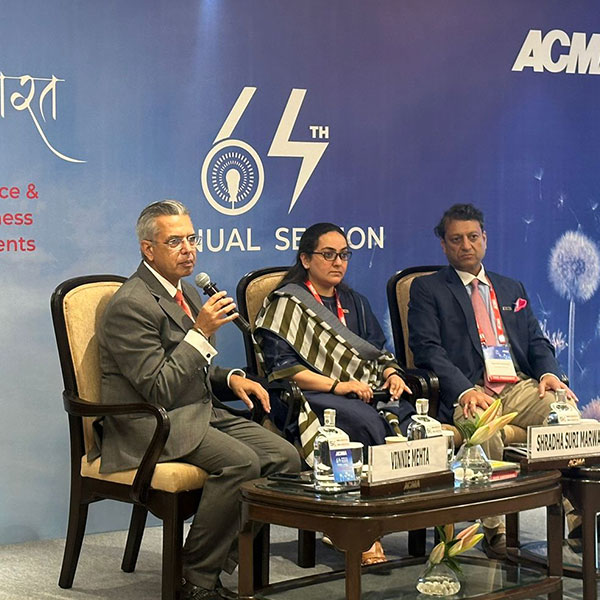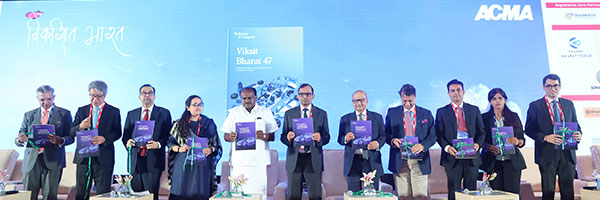
The Automotive Component Manufacturers Association of India
With over 1054 members, ACMA is the premier organization representing India’s automotive components manufacturing industry.
ACMA's mission is to drive industry growth, job creation, and economic prosperity. Committed to research and development, ACMA ensures that India remains a leader in global automotive components manufacturing.
ACMA supports its members through an expanding network, offering valuable resources, industry insights, and collaboration opportunities. The organization is also instrumental in shaping policies and regulations that foster sustainable and inclusive growth.
India’s Automotive Sector
A Driving Force in the Country’s Economy

India’s automotive sector is a vital part of its economy, contributing 49% to the country’s manufacturing GDP and 6% to the overall GDP, while supporting over 30 million jobs.The auto industry in the country is valued at over $150 billion.
In FY 2023-24, the auto component industry grew to USD 74.1 billion, reflecting a 9.8% increase from USD 69.7 billion the previous fiscal year. Domestic OEM supply rose by 8.9% to USD 62.4 billion, with the electric vehicle (EV) sector contributing 6% to total production. Exports increased by 5.5% to USD 21.2 billion, while imports grew by 3% to USD 20.9 billion, resulting in a trade surplus of USD 300 million. The aftermarket sector also expanded by 10% to 11.45 billion.
Auto component exports grew by 5.5% to USD 21.2 billion in FY 2023-24, with North America accounting for 32% of exports (a 4.5% increase), Europe 33% (a 12% increase), and Asia 24% (stable performance). Key export items include drive transmission and steering, engine components, body and chassis, and suspension and braking systems.
Imports of auto components rose by 3.0% to USD 20.9 billion, with Asia contributing 66%, Europe 26%, and North America 8%. Key imports included engine components, body and chassis, suspension and braking, and drive transmission and steering systems.
The aftermarket sector, valued at USD 11.3 billion, saw growth due to increased vehicle usage and higher demand for used vehicles. This sector is experiencing greater e-commerce penetration and organization, particularly in rural areas.
Message from
The Management
ACMA plays a critical role in advancing India’s automotive industry by promoting trade, enhancing technology, improving quality, and disseminating information. The association participates in international trade fairs, sends trade delegations abroad, and publishes industry materials.
ACMA also contributes to manufacturing excellence through skills training, mentoring programs, and initiatives like 'Asset Turnover Improvement,' 'Uptime Improvement,' 'Zero Defect Quality,' and 'Sustainable Manufacturing.' It is actively involved in various government panels, committees, and councils to influence policies and regulations.
ACMA has signed Memoranda of Understanding (MoUs) with over 30 counterpart organisations in several countries to facilitate information exchange and trade cooperation.

